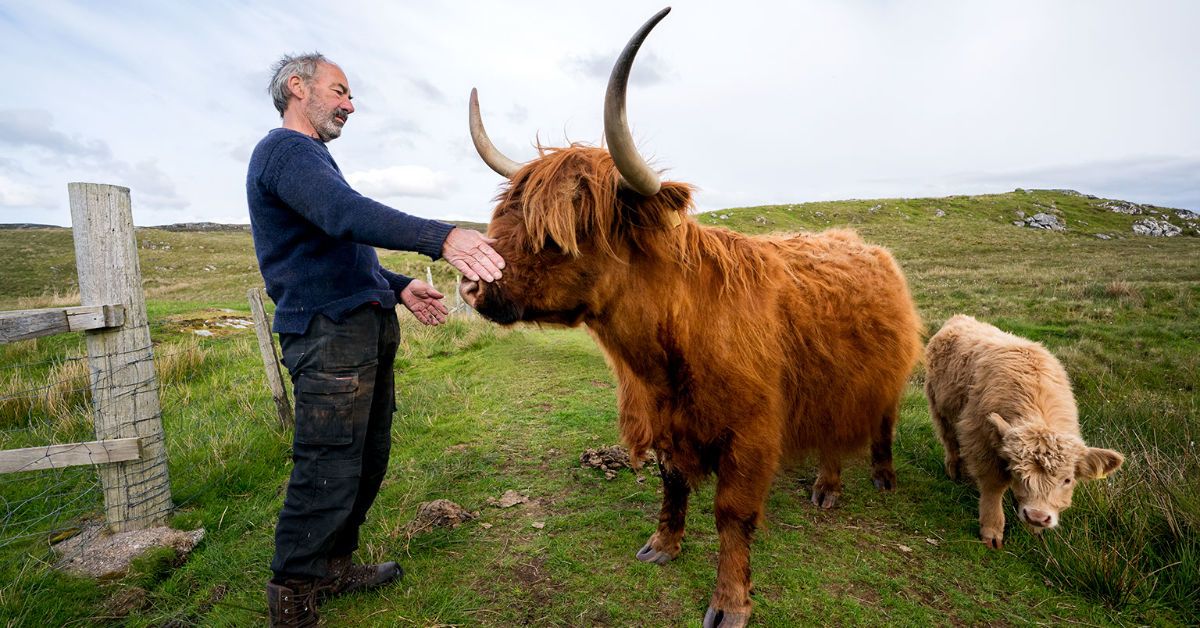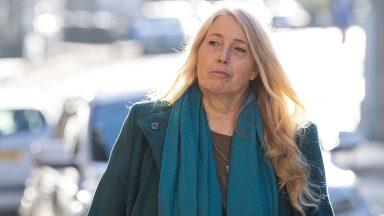Scotland’s crofters have called for changes after a report found “damaged relationships” and a “breakdown in trust” within the body responsible for securing their future.
The chair of the Scottish Crofting Federation has said that the current set-up of the Board of Commissioners of the Crofting Commission “isn’t ideal” and “really needs to be reviewed”.
The comments come after Audit Scotland in its audit report of Crofting Commission for 2020/21 said that the body responsible for overseeing Scotland’s 20,000 crofts “must improve its governance and rebuild damaged relationships between its board and managers”.
Audit Scotland found that there had been “a breakdown in trust between the Crofting Commission’s Board and its senior management team” with the Board “expressing a lack of confidence in the Commission’s chief executive”.
Auditors also found that there had been a “lack of involvement” of the Board in the setting of the Commission’s budget, along with “excessive involvement of the Board and former Convener in operational decision-making”
Concerns “about the leadership of the former convener, who resigned in June 2021” were also highlighted in the report’s findings and Auditors found “that a failure to respect established boundaries between the respective roles of the chief executive, convener and Board were at the heart of the poor relationship”.
Stephen Boyle, suditor general for Scotland, said: “Crofting is an integral part of life in the Highlands and Islands. But the leadership and governance of the Crofting Commission is currently falling below the standards expected of a public body.
“These is a pressing need to rebuild trust between the chief executive and the Board to ensure the boundaries of both roles are respected.
“It is vitally important that all parties, including the Scottish Government’s sponsor division, work closely together to develop better relationships so that the Commission can provide effective oversight of the services provided to crofting communities.”
Chair of the Scottish Crofting Federation, Donald MacKinnon, said: “It is very sad to read the report from the auditor general on the Crofting Commission. The commission is the key-stone to the much valued regulated system of land tenure that is crofting, and we hoped that this sort of internal wrangling was a thing of the past.
“We appreciate that the setup of a board of commissioners, some of which are elected, some appointed, an executive team and a body of government officials isn’t ideal for smooth functioning and really needs to be reviewed.
“Everyone involved must feel frustrated. The shame is that this translates into a lack of achievement of outcomes, particularly that which we have raised on many occasions about occupation and use of crofts. The lack of regulation is threatening the future of this system.”
Responding to earlier responses to the report by the Crofting Commission, Mr McKinnon added: “We note the comments from the commission convener and CEO, that the issues are being addressed, and we wish them well in this – there is an urgency.”
Responding to AS’s findings, Malcolm Mathieson, convenor of the Crofting Commission, said that the organisation recognised “that the leadership and governance did not meet the standards expected of a public body”.
He added: “…whilst it is important to recognise the unprecedented pressures and exceptional circumstances that we found ourselves in during the initial phases of the Covid-19 pandemic, we are confident that we have improved and transformed the organisation to ensure we meet the challenges of the future.
“The Board are clear in their support of the previous convenor and whilst disappointed, respect his decision to resign as convenor and commissioner from the East Highlands in July.”
Mr Mathieson concluded: “Substantial progress has been made since the completion of the audit report; in particular, the clarification of roles and remits within the Commission have been defined and accepted by all.
“The Board is enthusiastic about the new development function within the Commission and the upcoming digitalisation of many of our functions which will enable us as a Commission to be more effective and efficient.”
Bill Barron, chief executive of the Crofting Commission, added: “Both the Deloitte report and the Audit Scotland report identified areas in our leadership and governance arrangements as well as our business planning that required us to reassess, reflect and formulate an action plan which would address the matters in hand.
“Since the Commission were made aware of the concerns from the auditors we have worked exceptionally hard to make tangible and positive changes. We have developed an action plan and have, in just a few months, addressed over half of the points raised and have made good progress on others.”
Mr Barron added: “The reports do also highlight areas of our operation where we are exceeding the standards which are expected of us”.
“…it is clear that we are providing a fair and effective service to the crofting system and to crofters within our existing resources. I would like to thank all of our staff and Commissioners for continuing to provide this service despite the pressures that the pandemic burdened us with.”
Story by local democracy reporter Peter Urpeth
Follow STV News on WhatsApp
Scan the QR code on your mobile device for all the latest news from around the country


 iStock
iStock

























